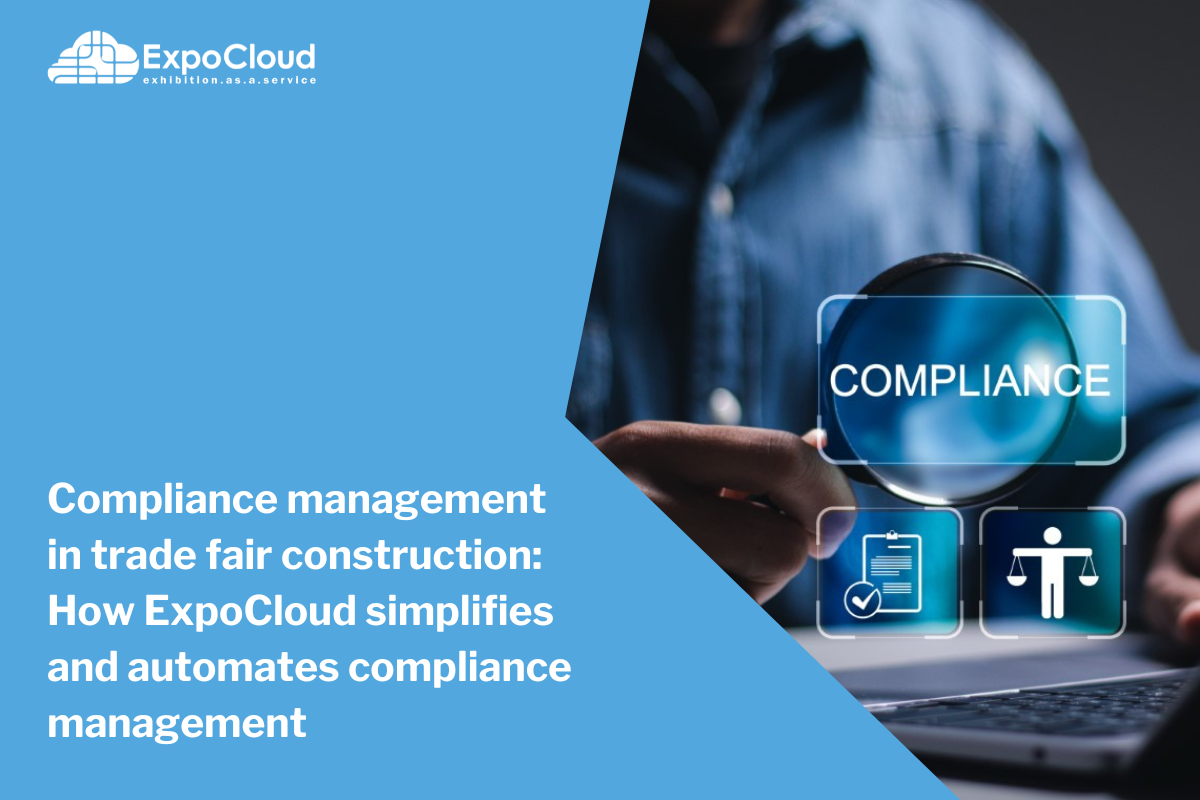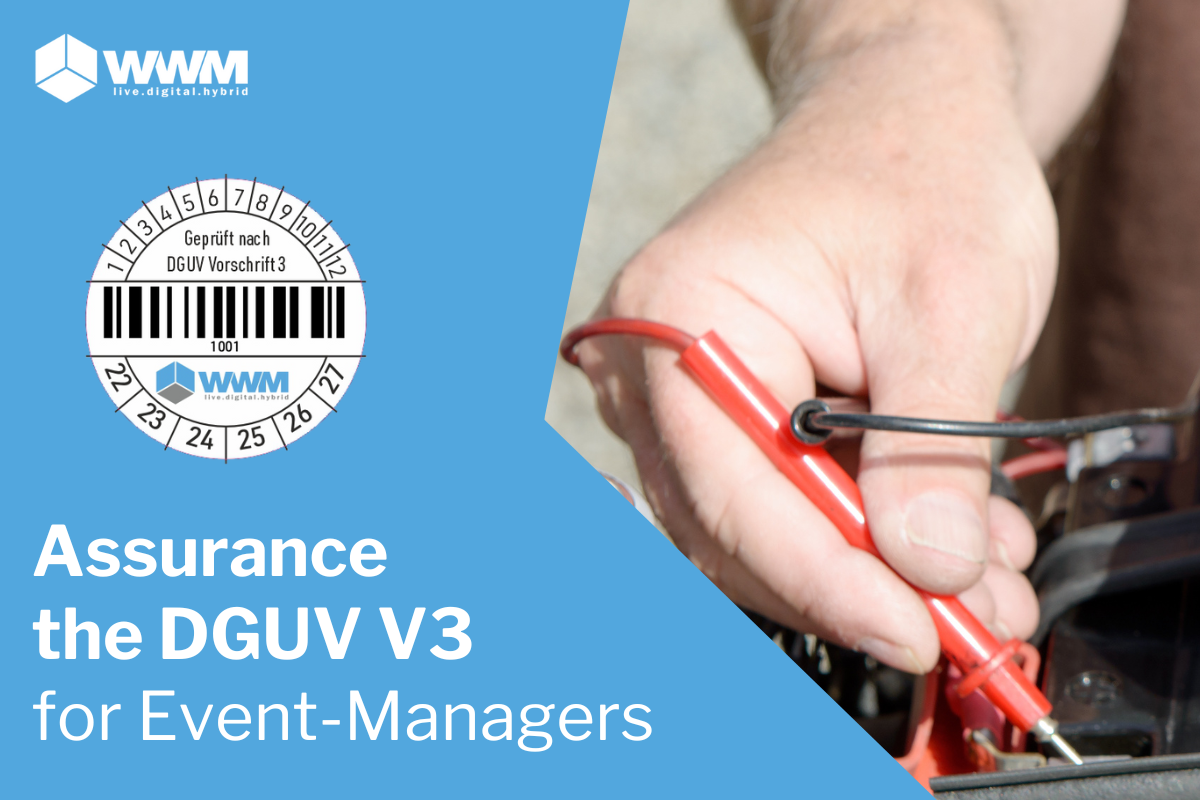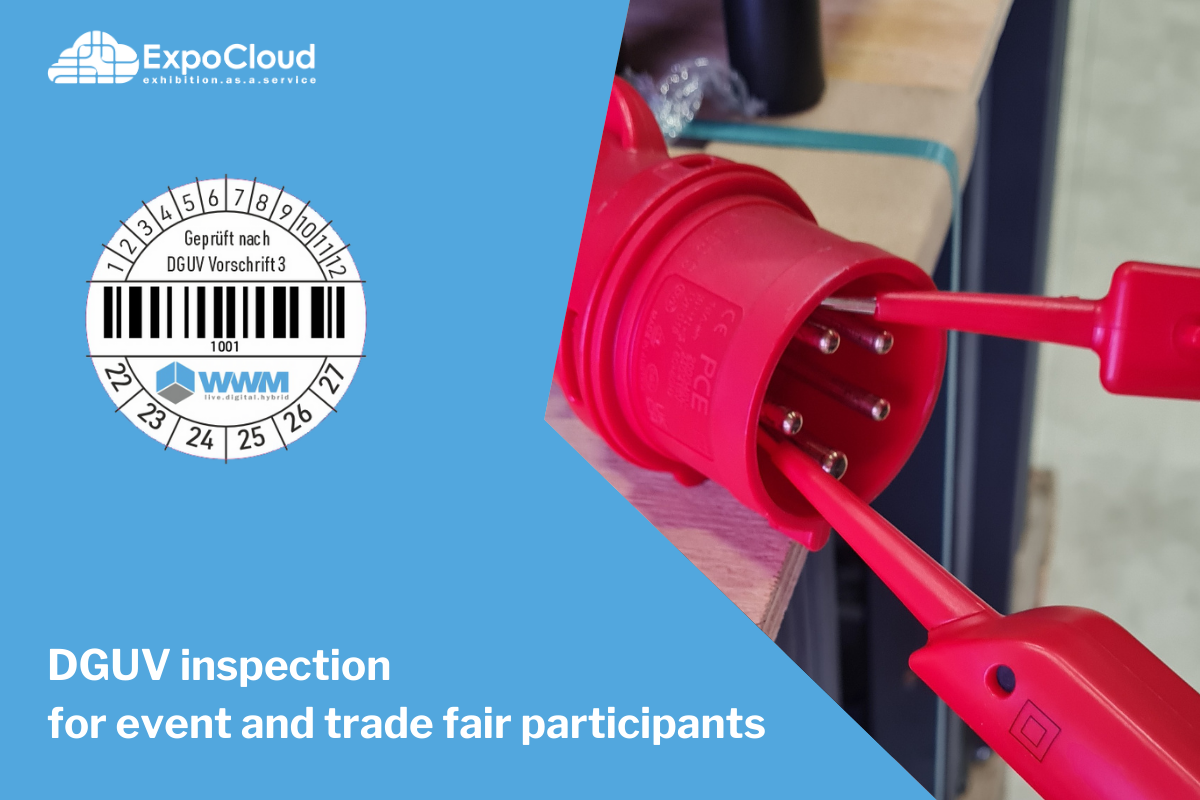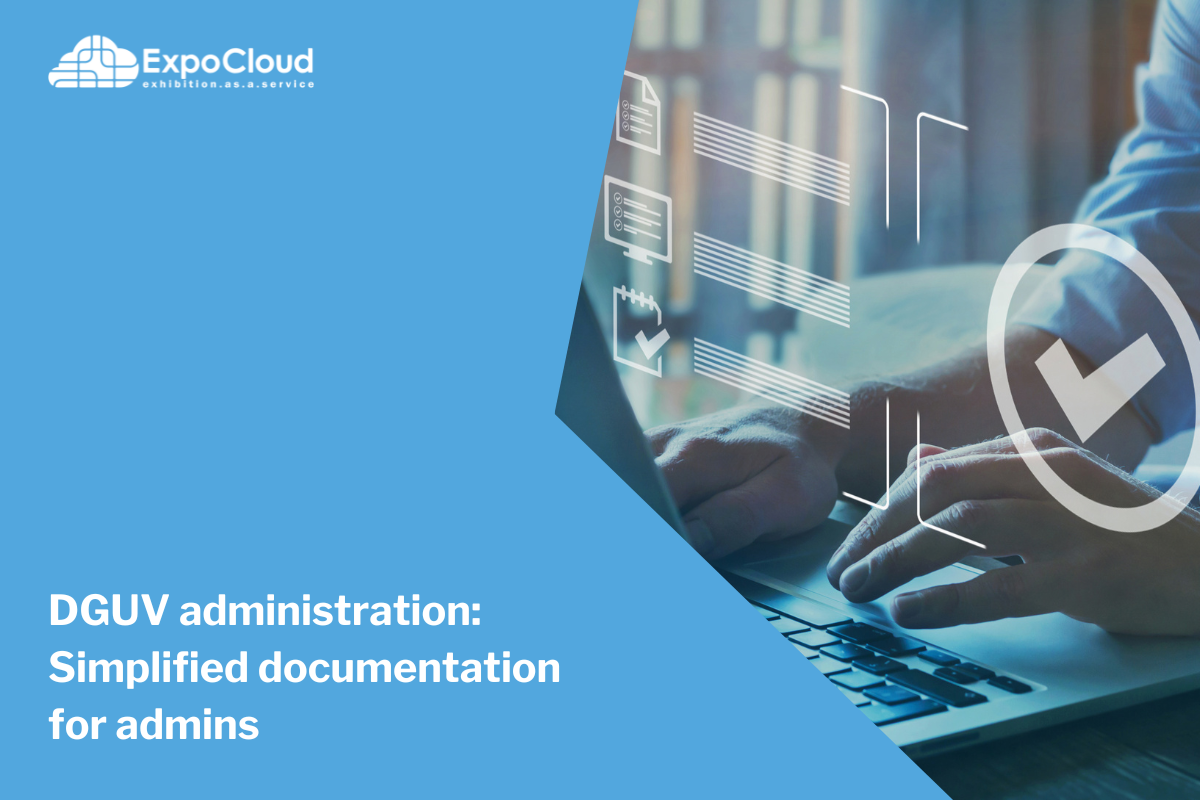Ensuring compliance with DGUV V3 at trade fairs and events for event managers
DGUV Regulation 3 on the necessity of testing electrical systems and equipment was published back in 1979. Essentially, this regulation obliges the...
4 min read
 Dr. Christian Coppeneur-Guelz
:
Sep 11, 2024 11:45:00 AM
Dr. Christian Coppeneur-Guelz
:
Sep 11, 2024 11:45:00 AM

In the world of exhibition stand construction, it's not just about creating impressive stands that attract attention and visitors. Behind the scenes, there are complex requirements that go beyond mere design. Compliance management plays a central role in ensuring that all legal, ethical and regulatory requirements are met.
1. What is compliance management in exhibition stand construction?
2. Important compliance aspects in trade fair construction
3. Advantages of well-structured compliance management
4. How does ExpoCloud support event managers with compliance tasks?
Compliance management refers to adherence to laws, regulations and internal company guidelines. In exhibition stand construction, this means that all aspects of a project - from planning and material procurement to assembly and operation at the exhibition - must be carried out in compliance with legal requirements. These include, for example, labour law regulations, safety regulations, environmental requirements and industry-specific rules.
Fire protection and safety regulations:
Exhibition halls and temporary structures are subject to strict safety regulations. These include requirements for fire protection, escape routes and load distribution. Failure to comply with these regulations can have serious consequences - from penalties to jeopardising the health of visitors.
Compliance with DGUV Regulation 3:
DGUV Regulation 3 (formerly BGV A3) regulates the safety of electrical systems and equipment. This is particularly relevant in exhibition stand construction, as numerous electrical devices such as lighting, displays and computers are used. The regulation requires that all electrical systems and equipment are regularly checked for safety. This applies in particular to portable electrical equipment, which must be checked at short intervals and before each use at trade fairs. Failure to comply with these regulations can not only result in fines, but also pose a considerable risk to employees and visitors. The inspection must be carried out by a qualified electrician who can prove that all electrical equipment complies with the applicable safety standards. Regular inspection intervals and documentation of the tests carried out are essential in order to comply with the requirements of DGUV V3.
Well thought-out compliance management offers numerous advantages:
Risk minimisation:
Companies that actively monitor and implement their legal obligations reduce the risk of penalties, lawsuits and reputational damage.
Precise compliance avoids unforeseen costs that could arise from non-compliance, such as contractual penalties or rework.
Reputation and trust:
Customers and partners are more likely to trust companies that adhere to the applicable rules and make this transparent. A good reputation strengthens the market position and opens up new business opportunities.
Employee protection:
Employees are protected by complying with safety and working time regulations and regularly inspecting electrical systems and equipment in accordance with DGUV V3. This is essential not only legally, but also morally.
Due to the increasing importance of good compliance management and the associated benefits, we have created the Compliance area in ExpoCloud with the 2024.08.15 release.

To use this area, users must be parameterised as compliance managers in the user administration. As of the current status (03.09.2024), this function is not associated with any additional licence costs.
You can now choose between the following functions in the area
This view gives you a direct overview of all your trade fair components that have an electrical connection and therefore fall under the DGUV-V3 standard.

In the status view, you can see the following information at a glance:
Filter DGUV inspection due
In the status view, you can use the ‘DGUV inspection due’ button to filter the view directly to the items whose inspection is due.

Now you can only see the items whose ‘Date of next check’ is in the past. These are the items that should be checked as soon as possible. Alternatively, you should block the articles so that they are no longer used at trade fairs and therefore present a risk of a compliance violation.
Excel-Export
Of course, ExpoCloud also offers the simple export of list views in the area of compliance.

If, for example, you want to output the list of all DGUV-V3 due items, you can simply use the ‘Excel export’ button to output them to an Excel spreadsheet and analyse them offline.

Commission DGUV inspection
In the analysis view, you can also switch directly to the workflow for commissioning DGUV V3 inspections.

This is then the ‘DGUV-V3 inspection’ process, which is described in the next chapter.
The DGUV-V3 testing section enables those responsible for compliance to commission the testing of electronic devices in accordance with the DGUV-V3 standard in 2 simple steps.
Step 1: Select item


Step 2: Order page

Compliance management in exhibition stand construction is not just an administrative act, but a fundamental necessity in order to organise projects in a safe, legally compliant and sustainable manner. Compliance with DGUV V3 for electrical equipment is just as important as the protection of employees and visitors. Companies that are aware of this responsibility not only strengthen their own position in the market, but also contribute to the safety and satisfaction of their employees and customers.
The ExpoCloud solution not only enables compliance officers to check the compliance status with regard to the DGUV-V3 standard in real time, but also to order necessary inspections with just a few clicks and thus ensure compliance.

DGUV Regulation 3 on the necessity of testing electrical systems and equipment was published back in 1979. Essentially, this regulation obliges the...

Republishing of this blog article from August 30, 2023.Participating in events and trade fairs is an excellent opportunity for companies to present...

Are you familiar with this? As a portal administrator, you not only have to manage technical devices and machines, but also ensure that all relevant...